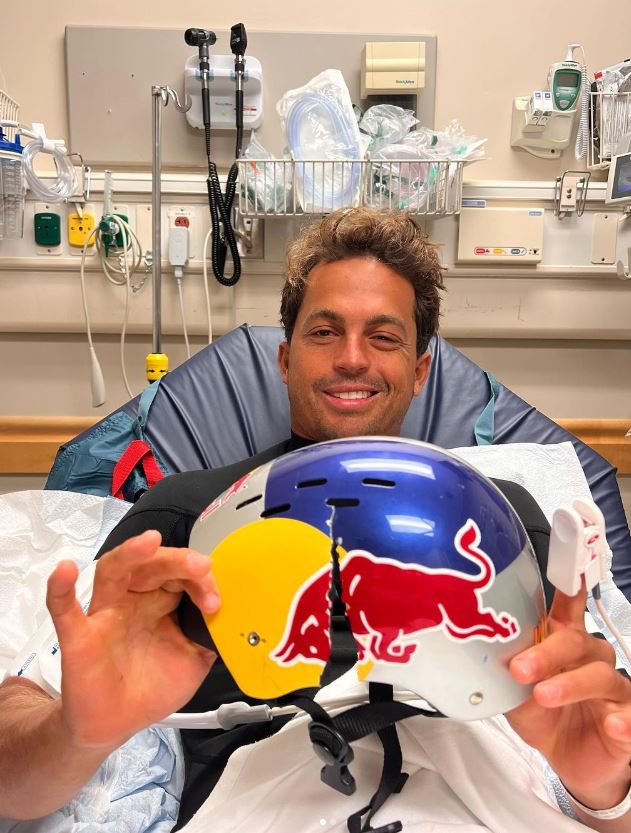World-renowned waterman Kai Lenny is expressing gratitude after enduring what he described as the most severe injury of his career just two months ago. Despite the traumatic experience, Lenny is well on his way to recovery and emphasizes the importance of taking necessary safety measures.
A prominent figure in the world of water sports, Lenny, known for pushing boundaries in wave-riding, faced a critical moment on January 4th that nearly altered his life trajectory.
Participating in the Da Hui Backdoor Shootout at Pipeline, Lenny vividly recalls the harrowing incident. “I recall descending into the wave, aiming to position myself as low as possible to penetrate deep into the barrel and hopefully navigate through the descending chandelier. Suddenly, I found myself tumbling onto my side, enveloped in darkness,” he recounted.
Following the wipeout, Lenny experienced a blackout that lasted approximately five minutes before regaining consciousness near the lifeguard tower, having somehow managed to paddle back to shore.
Reflecting on the ordeal, Lenny shared, “The most unsettling aspect was the memory lapse, the struggle to hold my breath, resurface, and make it back to safety.”
Enduring the most severe concussion of his athletic career that day, Lenny acknowledges the potentially dire consequences. “Had it not been for the helmet, I might not be here today. It was my inaugural time wearing a helmet at Pipeline, and that initial wave with the helmet likely averted a fatal outcome, as the impact could have been catastrophic,” he admitted.
The incident served as a profound catalyst for Lenny. “I would prefer to endure multiple limb fractures over a head injury, as the mind shapes our reality, and mine was momentarily shattered,” he confessed.
Following a period of rest, medical evaluation including an EEG scan, and collaboration with a local physician, Lenny embarked on his path to recovery.
Dr. Spencer Chang, a medical authority affiliated with the World Surf League, underscored the gravity of untreated concussions, citing the potential for severe repercussions such as brain swelling and even fatality in cases of second impact syndrome.
Recovery from concussions varies widely, spanning from days to potentially years, contingent on the severity of the injury. Chang emphasizes the pivotal role of prevention, with helmets emerging as crucial protective gear.
Acknowledging the shift towards helmet usage among professional surfers, including Lenny, Chang highlighted the evolving safety norms in water sports.
Looking ahead, Lenny contemplates the development of a lighter, aesthetically enhanced helmet, underscoring his commitment to advancing water safety standards.
